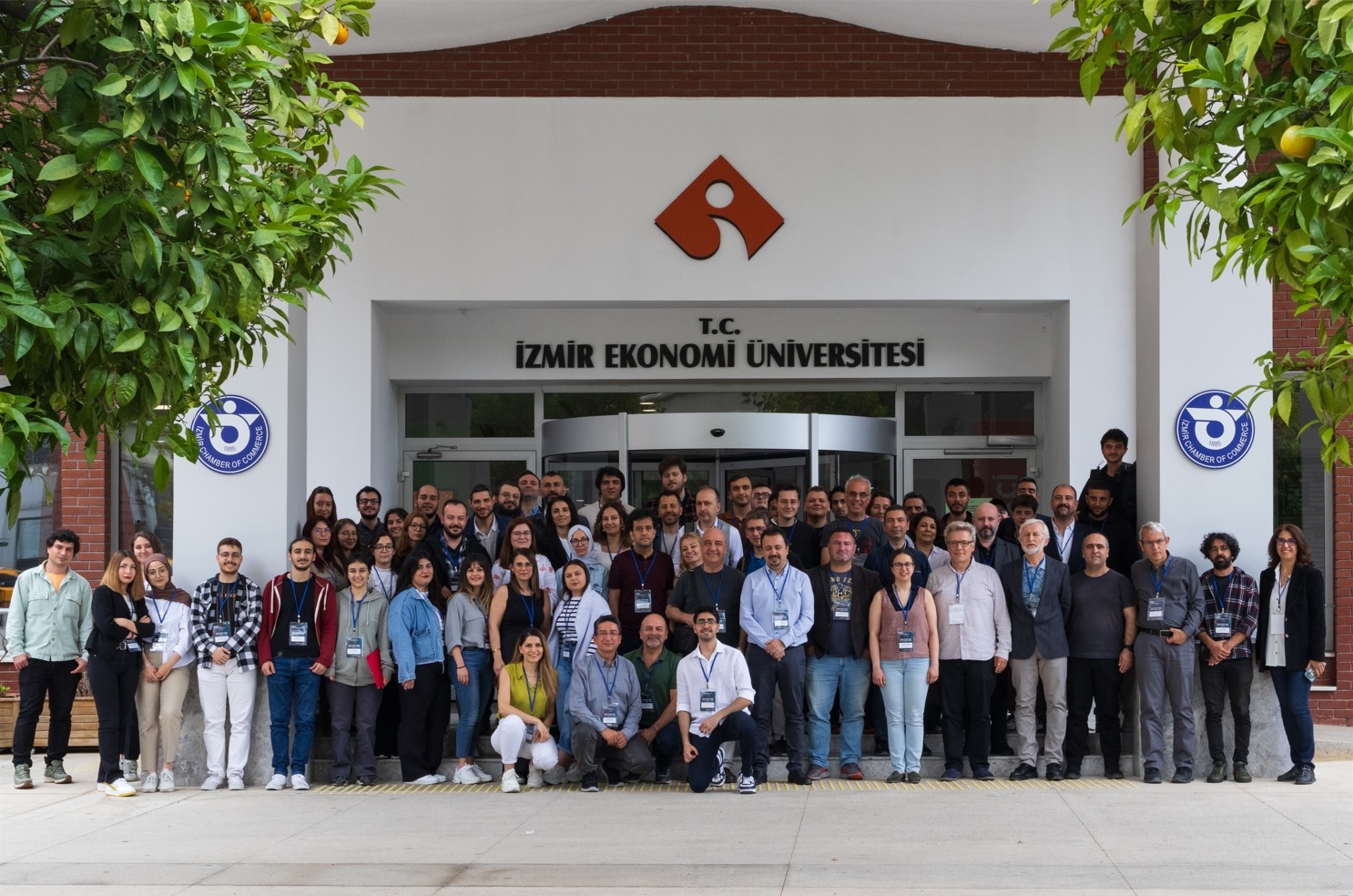
Izmir University of Economics Physics Department Dense Matter Physics Meeting
Izmir University of Economics, Faculty of Arts and Sciences, Department of Physics hosted the traditional 11th Dense Matter Physics-Izmir meeting ...
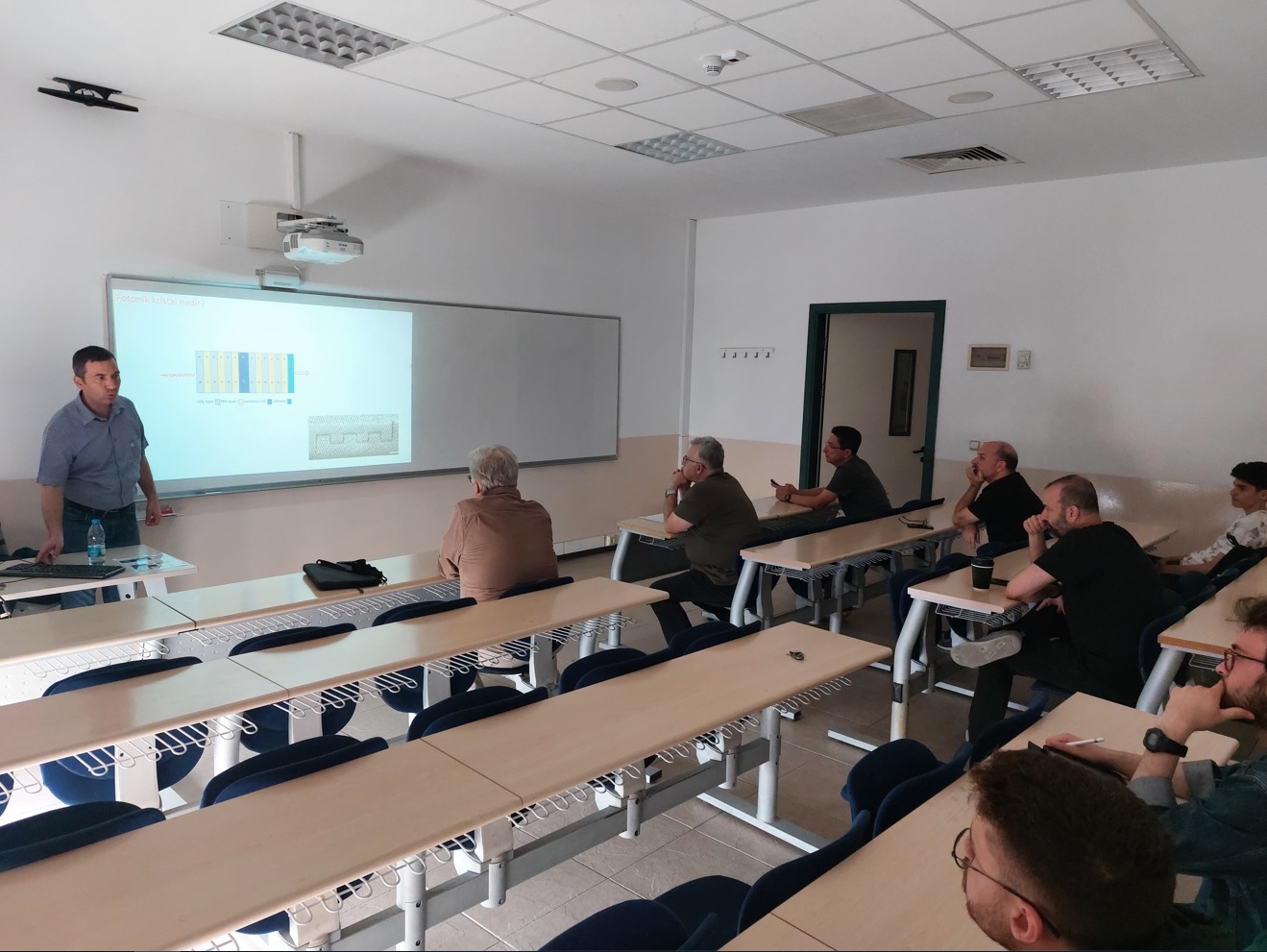
Seminar at the Department of Physics
Hacettepe University, Institute of Nuclear Sciences faculty member Prof. Dr. Mehmet Emre TAŞGIN presented on 'Revolution in Photonic Technologies – ...

The Physics Department Erasmus Agreement
Dear Students of the Physics Department at Izmir University of Economics, Our university has signed an Erasmus agreement with University Paul ...
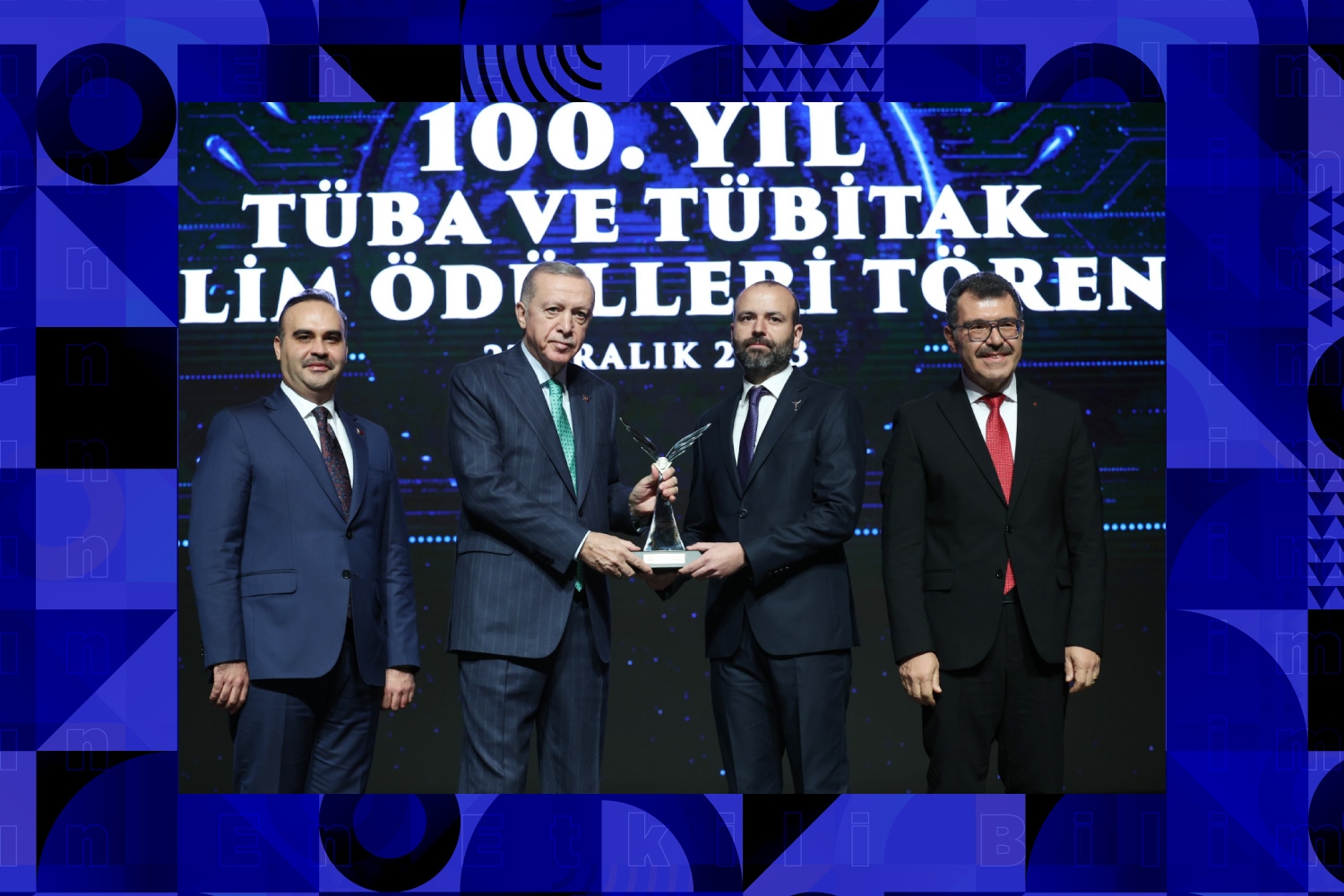
Four major awards in 5 years
Prof. Dr. Göktuğ Karpat, Faculty Member at Department of Physics, Faculty of Arts and Science, Izmir University of Economics (IUE) ...

The Physics Department Erasmus Agreement
Dear Students of the Physics Department at Izmir University of Economics, We are pleased to share with you an exciting announcement! ...
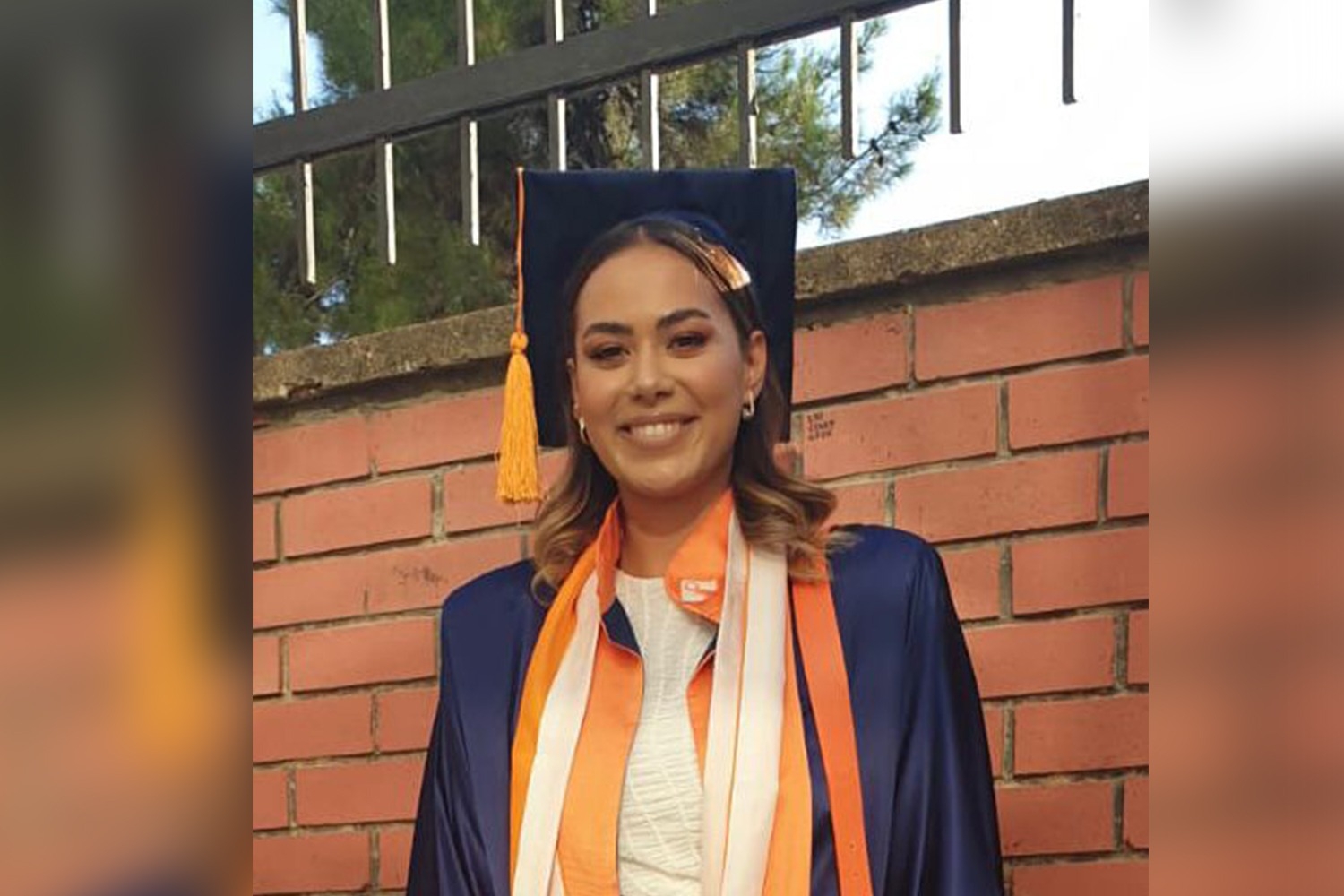
Loved physics, gave up her childhood dream
Senem Özdemir, who has been dreaming of becoming a pilot since childhood, graduated as the top student in the Department ...
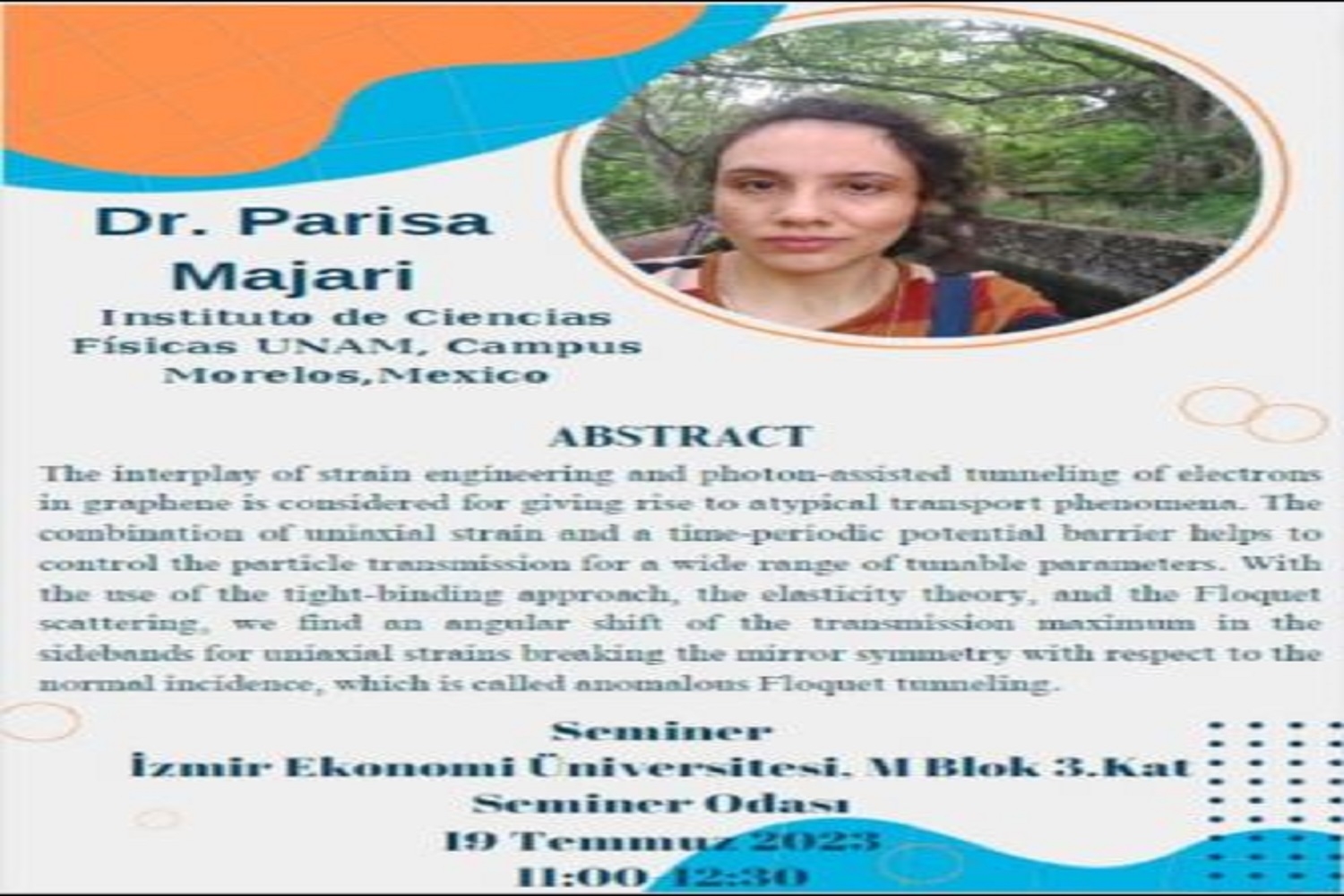
Scientific visit to the Department of Physics
Dr. Parisa Majari came to visit our Physics Department. Dr. Majari who studied with Prof. Dr. Gürsoy Bozkurt Akgüç gave ...

Ambassador of 'goodness'
Berfin Kolcu, a student of Izmir University of Economics (IUE) Department of Physics, went to Hatay, where thousands of people ...




